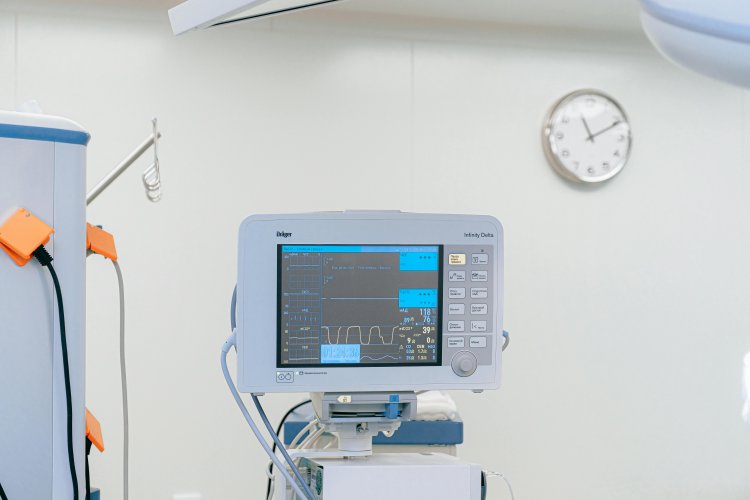What is health tech?
The overarching goal of health tech is to seamlessly integrate technology into health care systems making them more efficient accessible and patient-centered.
What is health tech?
Health Tech
Health Tech short for health technology is a rapidly growing field that leverages technology to improve health care delivery enhance patient outcomes and streamline medical processes. The overarching goal of health tech is to seamlessly integrate technology into health care systems making them more efficient accessible and patient-centered.
Key components of health technology
1. Telehealth and Telemedicine
Telehealth and telemedicine involve the use of digital communication technologies to provide remote health services. This includes virtual consultations remote monitoring and telehealth platforms that connect patients with health professionals without the need for an in-person appointment.
2. Wearable Devices
- Wearable health tech devices such as smartwatches and fitness trackers monitor and collect data related to physical activity heart rate sleep patterns and more. This data is often used for personal health tracking and can be shared with healthcare providers for a comprehensive view of a patient's health.
3. Electronic Health Record (EHR)
– EHR streamlines information sharing between healthcare providers and contributes to more informed decision making.
4. Artificial Intelligence (AI) and Machine Learning (ML)
– AI and ML applications in health tech include diagnostic tools predictive analytics and personalized treatment plans. These technologies analyze vast datasets to identify patterns predict patient outcomes and help healthcare professionals make more accurate and timely decisions.
5. Robotics in Healthcare
Robots are employed in various health care settings for tasks such as surgery rehabilitation and patient care. For example surgical robots enable minimally invasive procedures with precision while robotic exoskeletons assist patients with mobility disabilities.
6. Health Apps
- Health apps cover a broad spectrum including fitness apps medication reminder apps mental health apps and chronic disease management apps. These applications empower users to take control of their health monitor conditions and receive personalized health guidance.
7. Digital Therapeutics
- Digital therapeutics are software-based interventions designed to prevent manage or treat medical conditions. These interventions may stand alone or be used as a supplement to conventional treatments. Examples include apps for managing chronic pain diabetes or mental health.
8. Biotechnology
- Biotechnology advances contribute to innovations in personalized medicine gene therapy and diagnostics. Precision medicine for example tailors medical treatments to the individual characteristics of each patient increasing the efficacy of treatments and reducing adverse effects.
9. Health Information Technology (Health IT)
- Health IT includes technologies used to manage health information including EHRs health information exchange (HIE) systems and data analytics tools. It facilitates secure data sharing between healthcare providers and improves the overall management of health information.
10. 3D Printing in Healthcare
- 3D printing technology is used to create patient-specific models implants and medical devices. This innovation has applications in orthopedics dentistry and surgical planning allowing customized solutions tailored to individual patients.
How health technology is used
1. Remote Patient Monitoring
2. Telemedicine Consultation
3. Advanced Diagnostic Capabilities
4. Individualized Treatment Plans
5. Medication Management Apps
6. Data Integration and Interoperability
7. Robotic Assisted Surgery
8. Teletherapy and Mental Health Apps
9. Biotechnology Innovation
10. 3D-Printed Medical Devices
Challenges and Considerations
While health technology brings many benefits it also presents challenges and considerations including
1. Data Security and Privacy
- Protecting patient data from breaches and ensuring confidentiality is a serious concern. Health technology solutions must adhere to strong security measures and comply with data protection regulations.
2. Interoperability Issues
- Achieving seamless data exchange between different health technology systems remains a challenge. Interoperability standards are necessary to ensure that information can be shared across different platforms.
3. User Adoption
- Successful implementation of health technology depends on user adoption. Health care professionals and patients need to feel comfortable adopting and using these technkologies for them to be effective.
4. Regulatory Compliance
- Health technology solutions must comply with regulatory standards and certifications to ensure that they meet safety and efficacy requirements. Navigating the regulatory landscape is critical for developers and healthcare organizations.
5. Moral Considerations
–Accessibilityk Ethical considerations such as responsible use of AI in health care patient consent and ethical collection and use of health data must be carefully addressed to build trust and ensure ethical practices.
6. Affordability and Accessibility
- Health technology solutions must be affordable and accessible to different populations to ensure equitable healthcare. Addressing issues of affordability and access is important for widespread adoption.
conclusion
Changing the health care landscape using health technology. Health technology offers immense potential to revolutionize healthcare by improving efficiency, accessibility, and patient outcomes. From wearable devices for remote monitoring to AI-powered diagnostics, these innovations hold promise for a healthier future.
What's Your Reaction?




















